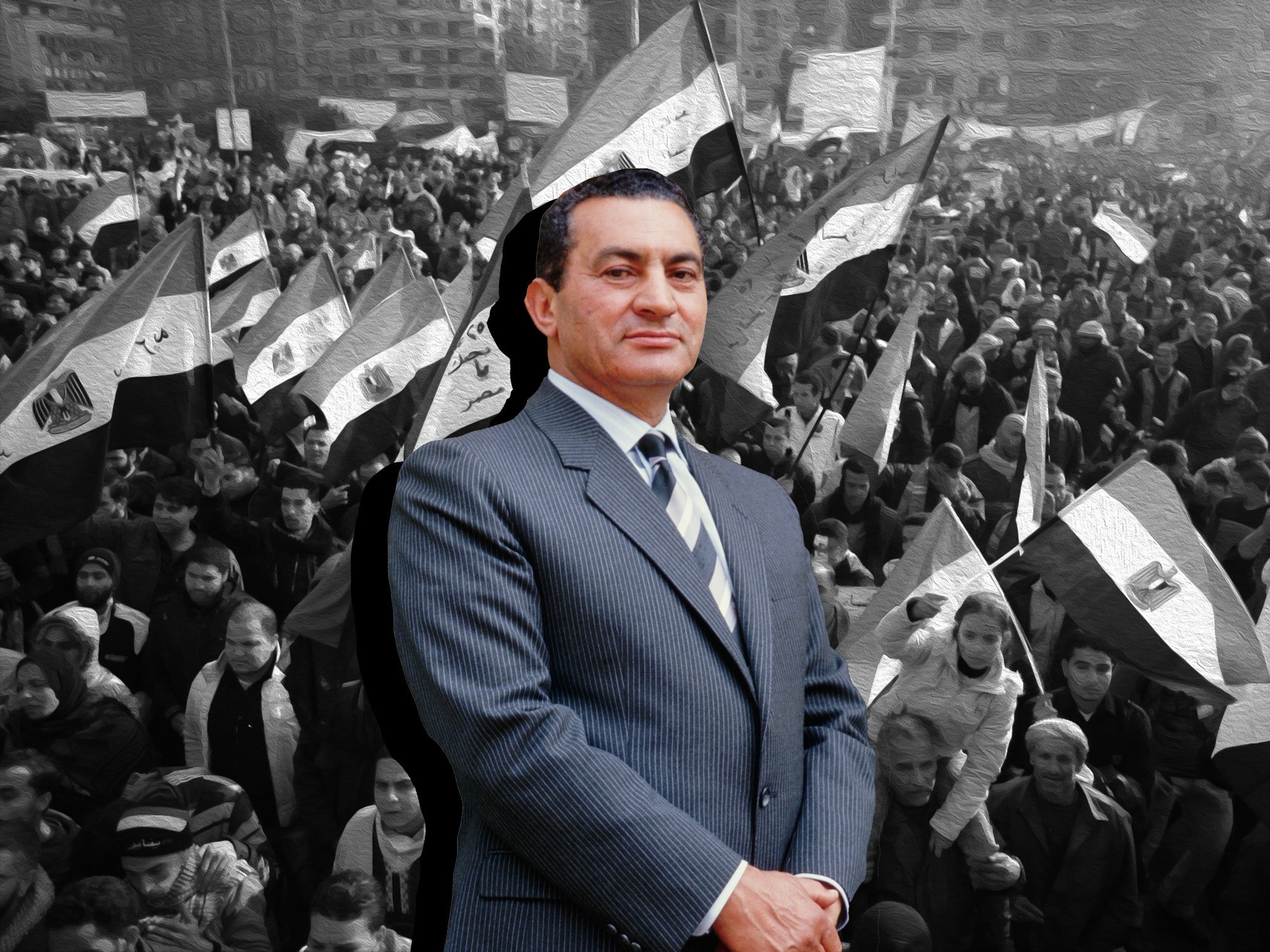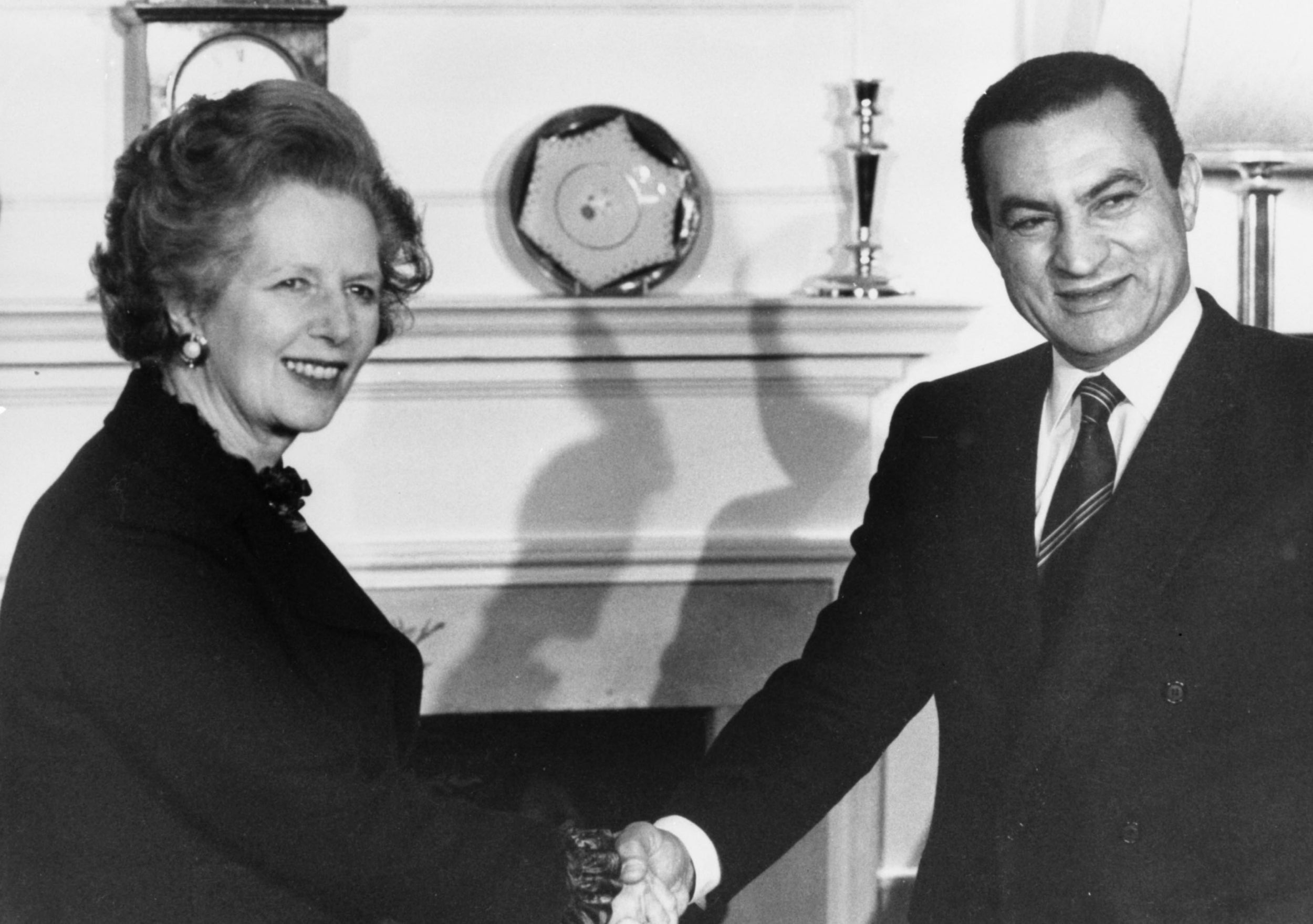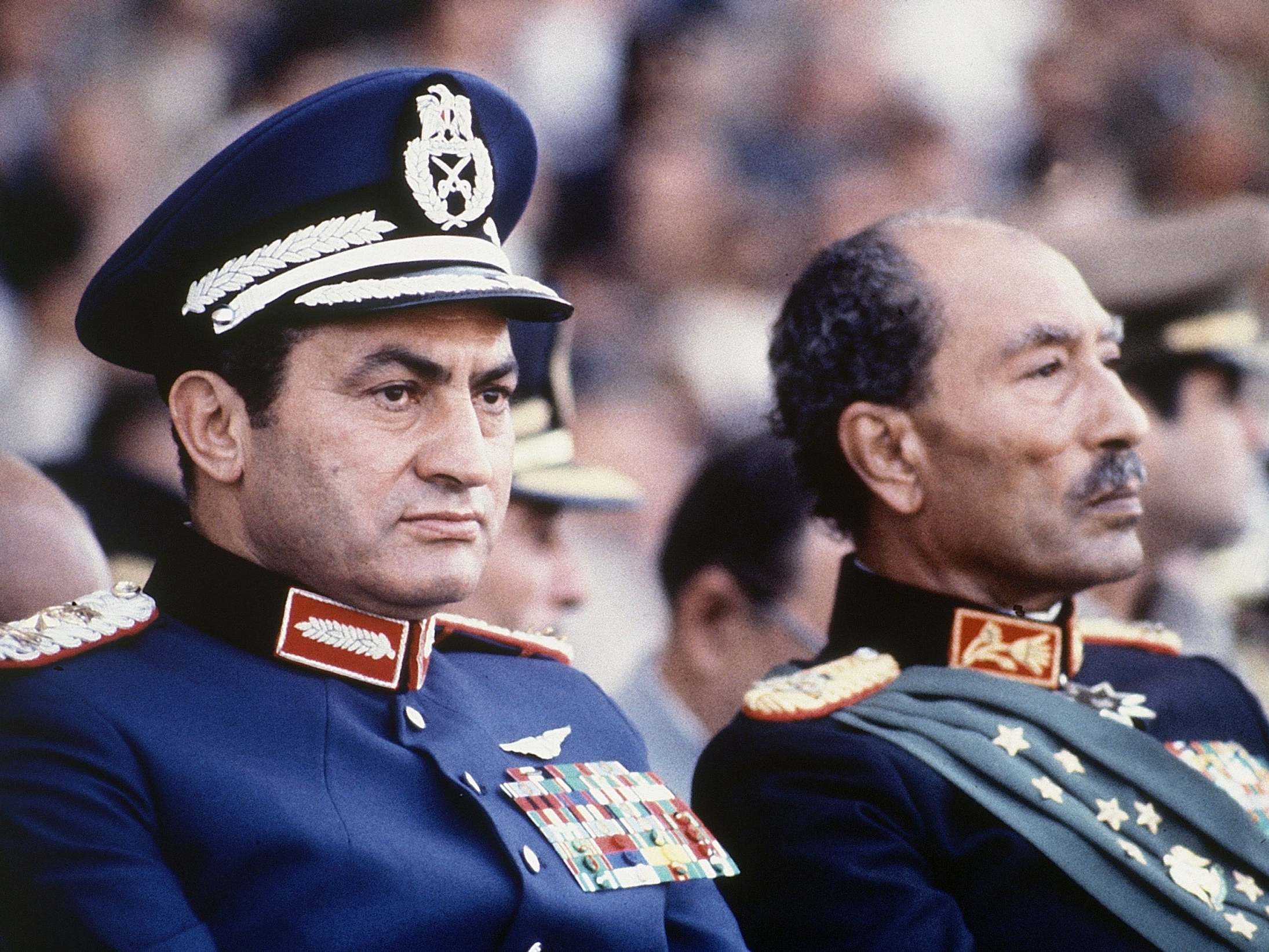Complicated legacy for ‘modern-day pharaoh’ Hosni Mubarak, whose ousting as dictator paved way for more brutality
The corruption he oversaw throughout his decades in power has been replaced with something even more repressive, write Borzou Daragahi and Bel Trew


Just months before he was forced to resign from the presidency of Egypt after 30 years in power, a leading state-owned newspaper doctored a photograph of Hosni Mubarak and other Middle Eastern leaders at the White House with Barack Obama.
The image of Mubarak, who died at the age of 91 on Tuesday, was cut from the rear of the procession and pasted to the front in a chintzy bit of Orwellian propaganda characteristic of a previous era of Arab autocracy.
In retrospect, the Photoshop stunt is refreshing compared to today’s high-tech surveillance, censorship and repression practised by the likes of Egypt’s current ruler, Abdel-Fattah el-Sisi, or other Arab leaders such as Saudi Arabia’s Crown Prince Mohammed bin Salman.
“While the Mubarak era was far from perfect, there’s still a lot of nostalgia,” says Michele Dunne, an Egypt expert and former American diplomat at the Carnegie Endowment for International Peace. “There was repression but nowhere near as draconian as it is now.”
As news of Mubarak’s death spread, Egyptians and others contemplated his legacy. This stretched from his role as commander of his nation’s air force during a 1973 war against Israel, to ruler of the country for 30 years, to dictator clinging to power during 18 days of revolution that began on 25 January 2011 and ended with his ouster.
To many, he is responsible for rampant corruption, the denial of fundamental freedoms, brutal crackdowns and dysfunction within the Egyptian state, seen as having hampered the country.
Among the revolutionaries who rose up on 25 January 2011, he will be remembered for bolstering the ranks of the feared Amn al-Dawla – or state security, the most feared chapter of the police force.
He mobilised the black-clad interior ministry troops like a personal army to violently crush dissent.
It was disbanded after the revolution but reborn as Amn al-Watani, or national security, which today carries on the brutal handiwork even more stringently.
“His legacy permeates – because his legacy is the Egyptian regime that led to the 25 January revolutionary uprising,” says HA Hellyer, senior associate fellow at the Royal United Services Institute. “That regime doesn’t exist any more, but that regime was responsible for the factors that created such dissent that led to the uprising – and those factors are definitely still with Egyptians today. Mubarak’s legacy is that – and it will have lasting consequences.”
It is telling that the current Egyptian presidency announced three days of mourning, calling him one of the “leaders and heroes” of the 1973 war, saying he “restored dignity and pride” to the nation.
There were also reports that, as a former longtime air force pilot, he would receive an official military funeral.
Analysts suggested that Sisi and his inner circle are worried about a big spontaneous turnout of mourners who longing for the relative prosperity and small degree of political freedom under his rule.
This may be why Sisi’s office is so keen to co-opt the affair, bring Mubarak back into the fold and create a state funeral whose narrative they can control.
Under Sisi, more and more Egyptians appear to be sinking from the middle class into poverty while the government and bankers boast of growth.
“During Mubarak’s 30 years of rule, the country was characterised by corruption and stagnation but it was a less brutal era,” says Dunne. “While wealth was not well distributed, it was a bit more so than it is now.”
During the Mubarak era, many Egyptians traded jokes about their leader. In one, an adviser walks into the president’s office and tells him he’s written a farewell address to the Egyptian people.
“Why?” a shocked Mubarak supposedly responds. “Where are the people going?”
He was often described as a smiling but none too smart leader and was sometimes portrayed as a befuddled uncle.
In some ways, he understood that he didn’t have all the answers and he used to surround himself with pretty smart people
But here too he differed from Sisi and other Arab tyrants. Mubarak was a man who had a shred of humility, and knew he wasn’t the smartest guy in the room.
“In some ways, he understood that he didn’t have all the answers and he used to surround himself with pretty smart people,” says Dunne. “And he took advice from people on the economy, politics, and even foreign policy. Sisi behaves as though he has all the answers.”
During his final decade in power, Mubarak took advice from his sons Gamal and Alaa who urged a liberalisation of the media sphere and limited political opening. The Muslim Brotherhood was allowed to contest and win a limited number of seats in parliament.
Beginning with al-Masry al-Youm newspaper, private Egyptian news outlets began emerging, including satellite channels that took on risque political and social topics.
All of that has been shut down under Sisi. “Sisi would say that’s what led to Mubarak’s downfall,” says Dunne. “That’s why he doesn’t allow limited give and take.”
The presidency fell unexpectedly into Mubarak’s hands after the assassination of Anwar Sadat. Many thought he didn’t want the job, and took it on reluctantly, but credited him for overseeing Egypt at a time of healing and potential trouble.
“I think he inherited a system and he stabilised it and sustained it for a quarter-century,” says Tamara Cofman Wittes, a scholar at the Brookings Institution.
His biggest failure was rejecting the chance to remake Egypt for the future once it had been stabilised.

“He had a window of opportunity where he could have prepared it for the future including a period without him,” says Wittes, referring to the period in the early 2000s.
“There was a degree of political opening. He could have made adjustments to take advantage of that, and move Egypt to a path of a more open society and economy. But he didn’t.”
By 2010, when his mouthpiece doctored the photo of him with Obama and the other Middle East leaders, he had gone deep in the opposite direction, allowing corruption and waste to fester.
In December of that year, he oversaw parliamentary elections that were largely seen as a farce, angering Egyptians. And within weeks, the uprising against him began.
Millions descended on the streets in January 2011 – tellingly Egypt’s national police day, under the battlecry of “we are Khaled Said”: a young Alexandrian computer programmer horrifically beaten to death by the very police that Mubarak had so invested in.
The uprising was over in just 18 days: on 11 February, the country’s military leadership announced he had stepped down.
There was a degree of political opening. He could have made adjustments to take advantage of that, and move Egypt to a path of a more open society and economy. But he didn’t
Mubarak had done so little to hide the rampant corruption perpetuated by his family and tight knit cadre of cronies – including embezzling state funds, dishing out monopolies like gas exports and awarding construction contracts.
And he had done so much to build up his state security forces, isolating the army – the real power behind Egypt’s throne.
He had, in short, become a liability. He had to go.
The man described as a modern-day pharaoh was well looked after, following his ouster, as Egypt steadily became more repressive than ever imagined.
He was sentenced in 2012 to life imprisonment over the deaths of some 900 protesters killed by the security forces during the uprising.
Three years later he was convicted of corruption.

But after being held in luxurious military hospitals, Mubarak was acquitted of the most serious charges and released in 2017.
He lived out his last years in Cairo’s well-heeled Heliopolis district, quietly with his family.
Few were ultimately held accountable for the human rights crimes committed under his rule, none for the killings during the uprising. Instead fresh crimes were committed by a newer harsher regime under Sisi, who in 2014 oversaw what is believed to be the single largest killing of unarmed protesters in modern history.
As John Casson, the UK’s former ambassador to Cairo, now an associate fellow at Chatham House, said: “Egypt’s new military rulers see his fate as a warning to stamp out all dissent.
“The Arab Spring issues that were Mubarak’s undoing have been kettled but not resolved.”
Join our commenting forum
Join thought-provoking conversations, follow other Independent readers and see their replies
Comments